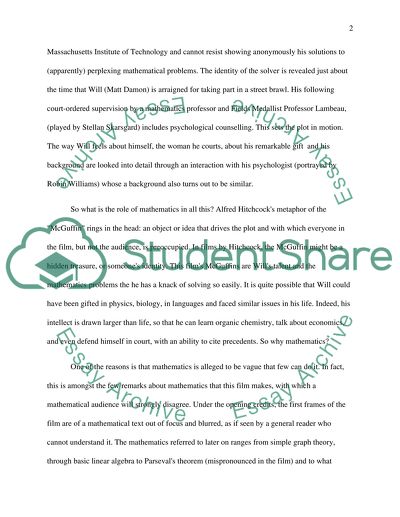Cite this document
(Critical Analysis of the Film Good Will Hunting Movie Review, n.d.)
Critical Analysis of the Film Good Will Hunting Movie Review. Retrieved from https://studentshare.org/visual-arts-film-studies/1436713-media-study
Critical Analysis of the Film Good Will Hunting Movie Review. Retrieved from https://studentshare.org/visual-arts-film-studies/1436713-media-study
(Critical Analysis of the Film Good Will Hunting Movie Review)
Critical Analysis of the Film Good Will Hunting Movie Review. https://studentshare.org/visual-arts-film-studies/1436713-media-study.
Critical Analysis of the Film Good Will Hunting Movie Review. https://studentshare.org/visual-arts-film-studies/1436713-media-study.
“Critical Analysis of the Film Good Will Hunting Movie Review”, n.d. https://studentshare.org/visual-arts-film-studies/1436713-media-study.


